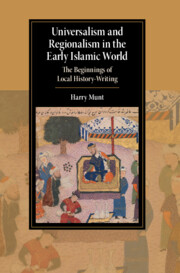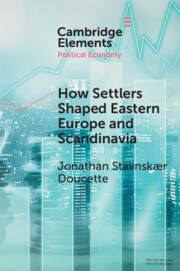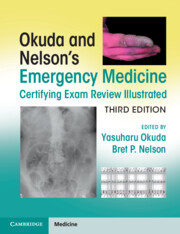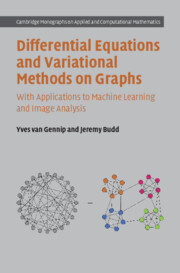Refine search
Actions for selected content:
3410549 results

The Cambridge Handbook of AI and Technologies in Courts
- Coming soon
-
- Expected online publication date:
- April 2026
- Print publication:
- 30 April 2026
-
- Book
- Export citation

Universalism and Regionalism in the Early Islamic World
- The Beginnings of Local History-Writing
- Coming soon
-
- Expected online publication date:
- April 2026
- Print publication:
- 28 February 2026
-
- Book
- Export citation

Basic Graph Theory
- Coming soon
-
- Expected online publication date:
- April 2026
- Print publication:
- 30 April 2026
-
- Book
- Export citation

Sor Juana Inés de la Cruz
- Coming soon
-
- Expected online publication date:
- April 2026
- Print publication:
- 01 July 2027
-
- Book
- Export citation
Transmission Lines
- Equivalent Circuits, Electromagnetic Theory, and Photons
- Coming soon
-
- Expected online publication date:
- April 2026
- Print publication:
- 30 April 2026
-
- Book
- Export citation

Opera Remixed
- Coming soon
-
- Expected online publication date:
- April 2026
- Print publication:
- 28 February 2026
-
- Element
- Export citation

Irish Political Thought and the Union
- Visions of Representative Government, 1798–1879
- Coming soon
-
- Expected online publication date:
- April 2026
- Print publication:
- 30 April 2026
-
- Book
- Export citation

How Settlers Shaped Eastern Europe and Scandinavia
- Economic Development, Regime Change, and State Formation, 800–1800
- Coming soon
-
- Expected online publication date:
- April 2026
- Print publication:
- 30 April 2026
-
- Element
- Export citation
Aquinas on Metaphysics as a Science
- Coming soon
-
- Expected online publication date:
- April 2026
- Print publication:
- 30 April 2026
-
- Book
- Export citation

Networks
- Probability and Statistics
- Coming soon
-
- Expected online publication date:
- April 2026
- Print publication:
- 31 March 2026
-
- Book
- Export citation

A Clinician's Guide to the Sixth Edition of the WHO Laboratory Manual for the Examination and Processing of Human Semen
- Coming soon
-
- Expected online publication date:
- April 2026
- Print publication:
- 30 April 2026
-
- Book
- Export citation

Okuda and Nelson's Emergency Medicine Certifying Exam Review Illustrated
- Coming soon
-
- Expected online publication date:
- April 2026
- Print publication:
- 30 April 2026
-
- Book
- Export citation
People For Oil
- Citizen Mobilization in the U.S. and Canadian Fossil Fuel Industries
- Coming soon
-
- Expected online publication date:
- April 2026
- Print publication:
- 31 March 2026
-
- Book
- Export citation
Governing International Commons
- From Polycentric to Plurinational Governance in the Amazon
- Coming soon
-
- Expected online publication date:
- April 2026
- Print publication:
- 30 April 2026
-
- Book
- Export citation
Industrial Development and Division of Labour
- A History of Analysis
- Coming soon
-
- Expected online publication date:
- April 2026
- Print publication:
- 30 April 2026
-
- Book
- Export citation

Differential Equations and Variational Methods on Graphs
- With Applications to Machine Learning and Image Analysis
- Coming soon
-
- Expected online publication date:
- April 2026
- Print publication:
- 30 April 2026
-
- Book
- Export citation

The Archaeology of the Tibetan Plateau
- Coming soon
-
- Expected online publication date:
- April 2026
- Print publication:
- 30 April 2026
-
- Book
- Export citation

Contemporary Australian Tort Law Cases and Materials
- Coming soon
-
- Expected online publication date:
- April 2026
- Print publication:
- 31 March 2026
-
- Textbook
- Export citation

The Cambridge Companion to the Byzantine Church
- Coming soon
-
- Expected online publication date:
- April 2026
- Print publication:
- 30 April 2026
-
- Book
- Export citation

Abandoning Democracy for the Nation
- Coming soon
-
- Expected online publication date:
- April 2026
- Print publication:
- 30 April 2026
-
- Element
- Export citation
